Usually, when covering the amazing startups emerging from Israel, we here at ISRAEL21c inquire as to their innovation, uniqueness and contribution to the world.
But upon interviewing Hadas Shatz Azoulay, the COO of MindTension, a few weeks into the war now engulfing Israel, conversation also turns to employees nearly being massacred in their homes, the CEO being away on military duty and people photographed at the company’s offices no longer being alive.
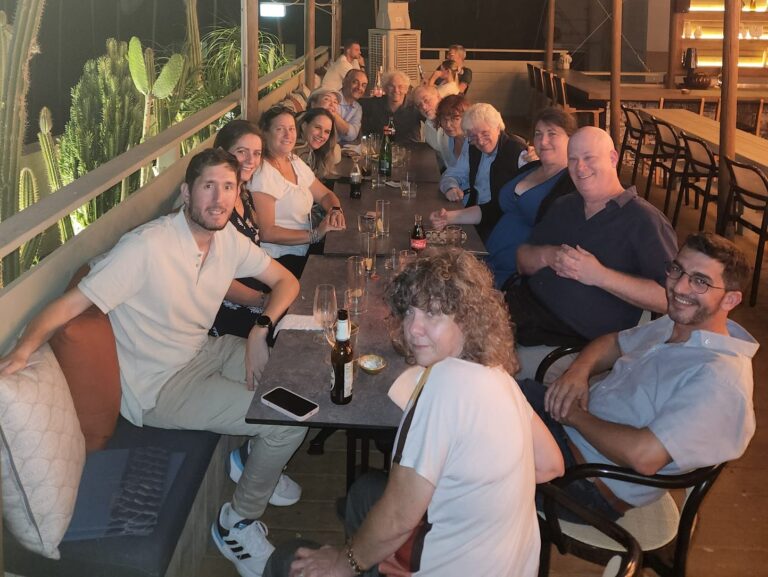
MindTension was founded in 2020 to develop a device that diagnoses ADHD by measuring the brainstem’s reflexive response to specific sounds.
Its offices are located near the Gaza border, in Kibbutz Nir Am, which was saved from destruction by Hamas terrorists on Saturday, October 7, largely thanks to the initiative of its security coordinator Inbal Rabin Lieberman.
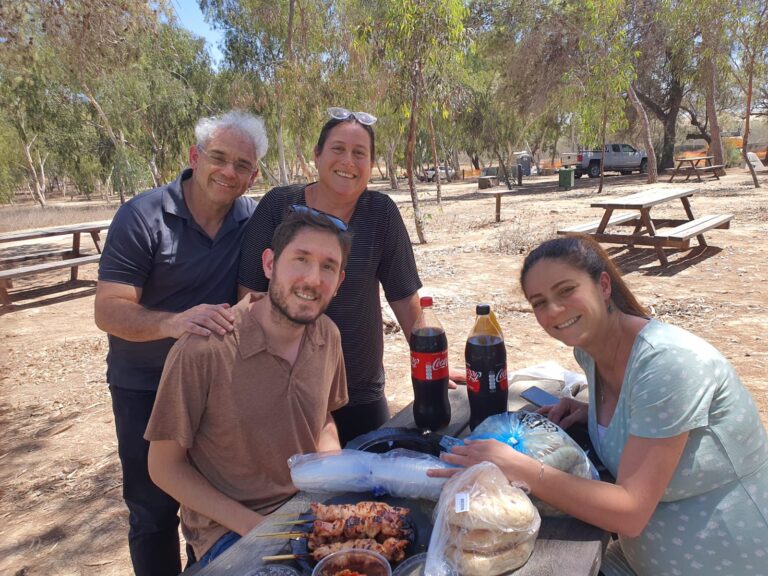
While MindTension’s offices were unharmed, it’s difficult to say the same of its workers.
“We have seven full-time workers, and another two working part-time or freelancing,” Shatz Azoulay notes. “Three out of the seven live in the south. I live in Negba, which is around five kilometers east of Ashkelon. We weren’t hit on October 7; we’re a tiny bit too far up north.
“But we have two employees who were very badly hit. One of them lives in Kfar Aza, and he was besieged with his wife and son until the early hours of Sunday morning. We were in touch with him the entire time, and it was awful,” she says.
“They lost family members, they lost friends, they heard shooting and shouting outside their window. Terrorists were right outside their window. He sent us a message that he wants to tell us that he loves us – a goodbye message.”
Reminiscent of the Holocaust
Another employee lives in Kibbutz Nirim. They were evacuated from their home in the early hours to one of the communal buildings, where they sheltered with others while soldiers fought around them.
“She’s got two little kids at home, and the messages she sent were reminiscent of the Holocaust. They went into the safe room when the alarms first went off, straight from their beds, and didn’t take anything with them. At some point she texted me that her one-year-old son is crying because he’s hungry and that they’re trying to shush him so that the terrorists won’t hear him. For me, it immediately connected to the stories of mothers in the Holocaust who had to shush their children,” says Shatz Azoulay. The family was later evacuated to Eilat.
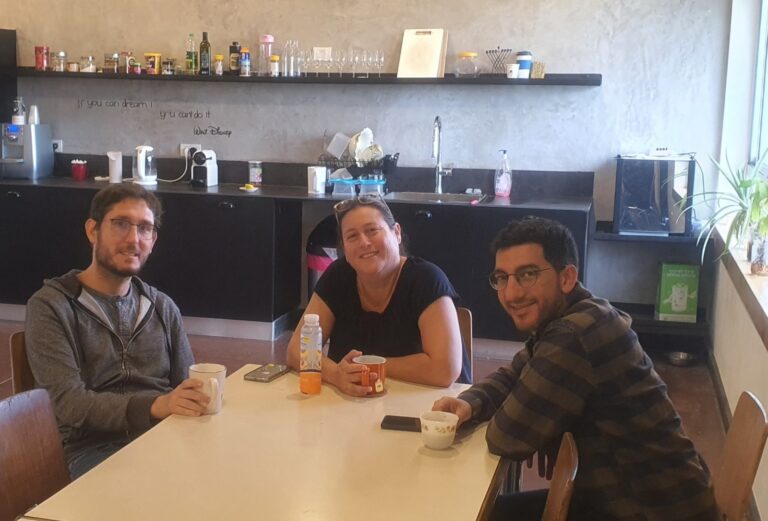
“I don’t know how to contain this kind of trauma – none of us can understand what she and her children have been through,” Shatz Azoulay confesses.
“And whether they’ll return to the area or leave has implications for us, both as friends and as a company,” she adds.
MindTension also has two more workers who have been evacuated from their homes and two employees away on reserve duty. The company’s CEO also served a couple of weeks of reserve duty and made his home in central Israel available to a displaced employee.
“The rest of us tried to advance things and hold down the fort and take on the jobs that our friends couldn’t,” Shatz Azoulay notes.
The world keeps moving
And yet the startup is looking firmly forward.
“The world keeps on moving, and there’s something comforting about that,” she says.
“We, including our employees who were evacuated to hotels and temporary apartments and have no idea what’s going on with their homes, are all checking up on work. There’s something sane about returning to routine and to work.”
What also keeps employees engaged is the potential for what MindTension is trying to accomplish, not only for kids with ADHD but also, in the future, for people with PTSD – especially since survivors of this war will likely be dealing with post-traumatic stress.
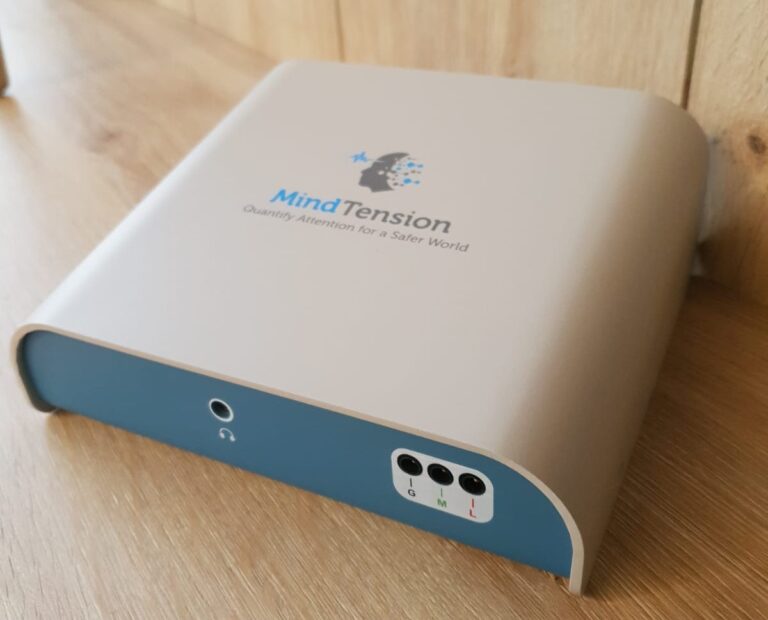
The medical device, based on years of research at the Technion – Israeli Institute of Technology, detects impaired attention by observing eye-blinking patterns in response to startle sounds.
“When your attention is good, you have different responses – big blinks, half blinks, all these different reflexive responses to different sounds. When your attention is impaired, you will react similarly to the different sounds,” Shatz Azoulay explains.
MindTension’s device is now undergoing a process of FDA approval in the United States, its first target market. Shatz Azoulay expects it to receive approval in early 2024, when the company will also launch a large clinical trial at the Geha Mental Health Center in Israel and Mount Sinai Hospital in New York to prove its algorithms.
The science of ADHD diagnosis
MindTension’s innovation in the field of ADHD, Shatz Azoulay notes, is that it offers a physiological exam for a physiological condition. Today, ADHD is diagnosed using questionnaires prone to subjectivity or exams that rely on voluntary participation.
By measuring reflexive responses, MindTension can provide a more accurate diagnosis, transforming attention testing into an exact science.
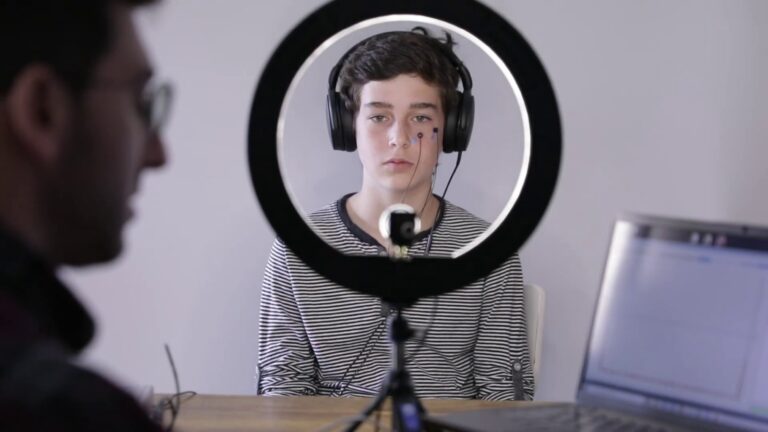
Measuring attention, she adds, is not confined to the realm of ADHD diagnosis.
The company envisions its device being used by people working in high-risk or high-attention industries that require alertness and concentration – long-haul drivers, surgeons, athletes or pilots, for example – as well as to help diagnose different mental health conditions that impact attention levels.
“The brainstem that responds to startle sounds has different patterns in different mental health conditions. We’re starting to understand that we can give good results about your attention, but we anticipate we’ll be able to give answers about your anxiety levels, or your depression levels,” Shatz Azoulay explains.
“This is all backed up with a lot of research done with different people across the world to startle response, but what we’re doing is making it available.”
Shatz Azoulay says that making plans is part of the company’s, and employees’, road to recovery.
“Progress, even it’s slow, will be part of our answer, part of our future,” she says. “While messaging one of our workers who was besieged, I asked about what he’d like done at work the following day. He wrote back saying, ‘What are you talking about? I don’t know if I’m going to be alive.’ But I replied that whoever makes plans believes that they have a future.”
“That’s what we’re doing,” she concludes. “We’re making plans and moving things forward, because we have a future – both as people and as a company.”
For more information, click here.















